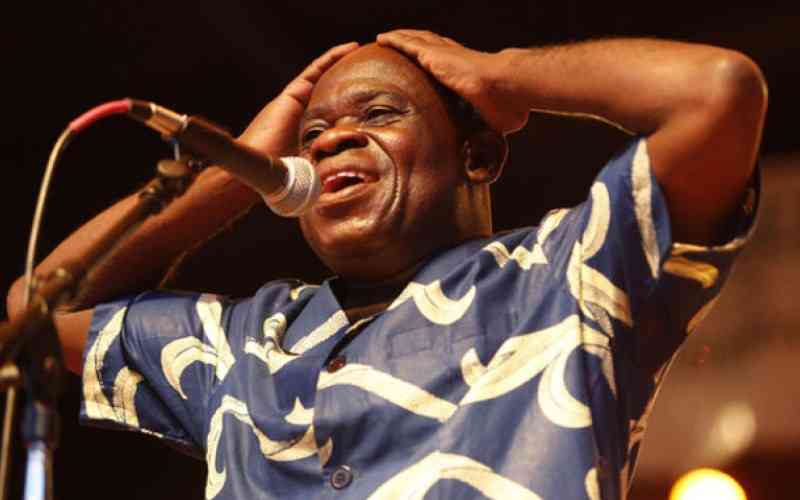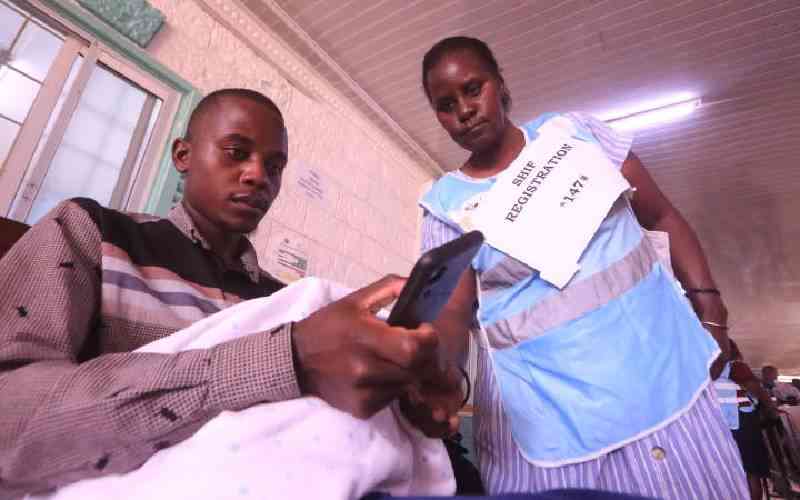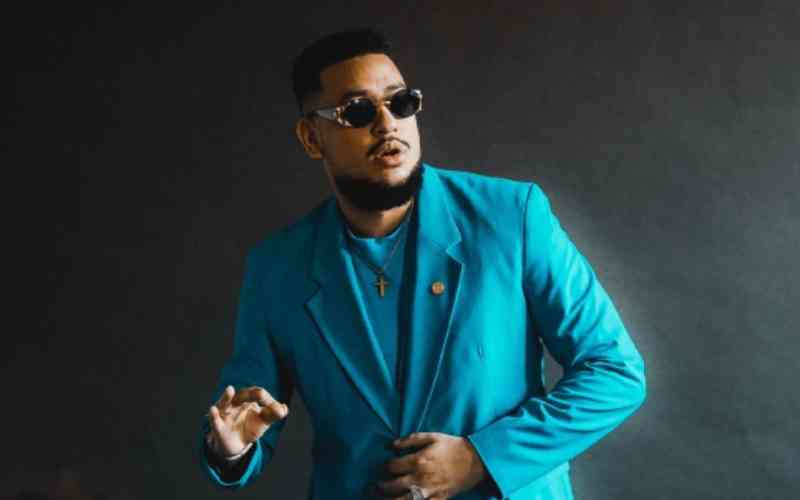
Rhumba maestro Samba Mapangala will tour Kenya and Uganda in April for a series of shows.
His tour is meant to quench the thirst of his fans who for over two decades have longed to have a taste of his music after relocating to the US in the mid-1990s.
However, Mapangala will first tour Uganda before coming to Kenya, which he refers to as his second home after his mother country, the Democratic Republic of Congo (DRC).
His like for Kenya stems from the city of Nairobi where he used to entertain fans in nightclubs for decades.
"Well, I'm coming to Kenya with another tour of Uganda, which comes with a series of shows in the two countries following an invitation by an organization that is well known to me and interested in our services," Mapangala told The Standard from New York.
He did not divulge details of this organization but promised to do so once they have agreed on the finer details of the negotiations.
Mapangala said they need to agree on several issues with the said organization before he could give the details of the tour, adding that all is well as he looks forward to meeting his fans in the region.
"Although, I cannot further divulge more details of this invitation at the moment, be assured it'll be done at the right time. It will be an East Africa regional tour, but I'll first head to Uganda before heading to 'My Beloved Country - Kenya'," he added.
Mapangala left Kenya for the US in the mid-90s and is expected to bring some renowned artistes who have lived with him abroad.
Among them are solo guitarists Ngouma Lokito and John Bashengezi who are all based in New York, and Kenyan rhythm guitarist Mulumbu, drummer Oscar from Nigeria and his compatriot Joseph Asukoyi and Congolese lead singer Freddy Nyembwe.
Lokito's experience comes in handy in the tour having been a member of the Soukous Stars. This band released popular hits in the nineties under the leadership of Lokassa Ya M'bongo.
Late last year in October, Mapangala had hinted to this reporter of his intention to tour Kenya this year for a series of shows.
And his confirmation of doing so stimulates his fans who have missed the artiste's soft and melodious voice for the past two decades.
Some of his popular songs expected to be featured during the tour that his East African fans were accustomed to from the seventies to the nineties are 'Vunja Mifupa Kama Bado Meno Iko' and 'Nyama Choma'. The artiste is one of the most travelled and famous Congolese Rhumba artistes, in the class of the likes of Franco Luambo Luanzo Makiadi of TP OK Jazz Band, Taabu Ley of Afrisa International and Lokassa Ya Mbongo of Soukous Stars, all of whom who have since died.
Mapangala has had extensive repeated tours of the Americas, Europe and Africa.
"We still have the energy to go places to play music. We have not limited our performances to any country. As long as Almighty God gives good health, we are ready to tour," he said last year.
Mapangala was last in Uganda in 1975 in a team of Congolese musicians who had just arrived in Kampala from Kinshasa where they formed Les Kinois Band before switching to Nairobi in 1977 to form Orchestra Virunga in 1981.
He is considered one of the golden era of Kenyan-based Congolese Lingala musicians, alongside the likes of musicians at Les Mangelepa, Baba Gaston and Moreno Batamba of Orchestra Moja One.
At the 2004 Tanzania Music Awards in Dar Es Salaam, his album 'Ujumbe' was nominated in the Best African Album Category.
'Ujumbe' was recorded in France in 2000 when he gathered a group of Congolese musicians residing in Paris, having arrived from Washington, US where he had stayed for three years.
Earlier, Mapangala had said his love for the two East African countries had not waned despite relocating to the US.
"I still love my fans from the two countries and my support to offer them what they like most will be seen during my next tour of the region next year (2024)," Mapangala had said in October last year.
He said he was forced to relocate to the US owing to many factors including the closing down of nightclubs in Nairobi, which used to host his band - Orchestra Virunga.
"Business had gone down by the late 1990s. We had nowhere to play our music. We had to find ways to ensure we play on and survive in the next millennium (2000). And that's why we relocated to the US," he said.
 The Standard Group Plc is a multi-media organization with investments in media platforms spanning newspaper print
operations, television, radio broadcasting, digital and online services. The Standard Group is recognized as a
leading multi-media house in Kenya with a key influence in matters of national and international interest.
The Standard Group Plc is a multi-media organization with investments in media platforms spanning newspaper print
operations, television, radio broadcasting, digital and online services. The Standard Group is recognized as a
leading multi-media house in Kenya with a key influence in matters of national and international interest.










